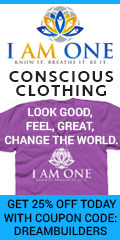How Spirit work through you
 Friday, March 20, 2009 at 9:35PM
Friday, March 20, 2009 at 9:35PM Human beings are often at a loss to explain how Spirit works through them. That is to say, it is human conditioning that prompts the mind to grasp and define what Spirit is and how it functions. Explore these five ways ways Spirit works through you;
1) Meditation. Images that arise during waking meditation actually come from nowhere. This nothingness is also known as the Spirit dimension. This points out the tangible or physical world is imagined into being by Spirit. When Spirit initially emerged as a body, it could taste more, touch more and had no need to eat. Its connection to nature was deeper than many humans allow themselves to experience inthe modern world. You decide to what degree you listen and hear Spirit in all you do. Walking and life can be experienced as meditation.
2) Mind mapping. Spirit offer opportunities to listen to heartfelt guidance in your life. The mind can complicate images with associations or interpretations of feelings. Spirit always guides a person to make choices based on feelings of increasing inner joy.
3) Dreamweaver assistance. Spirit help to incorporate ideas into night dreams and contribute to the mental puzzles you put together to solve. They may visit you in spirit form, send signals as metaphors, symbols or sensations. Spirit appear as you expect them in dreams, consciously and unconsciously.
4) Energy vibes. Human beings have free will. They generate emotions as part of a learning process. Each thought and feeling has an energy vibration. Spirit send love energy which overrules concerns and adds stability to your energy field. All human beings have not yet raised awareness to detect spiritual presence. Consciousness determines degree of discernment.
5) Keepers of neutrality. Spirit help you to know reasons exist for the particular body you occupy, for every event and creature you encounter. In fact, Spirit support you in unseen ways to evolve and recall what you choese to temporarily forget. This includes why you exist and create the situations you do all for your own expansion. In essence, Spirit is an ever-present, silent observer of all. It is not separate from "you."










